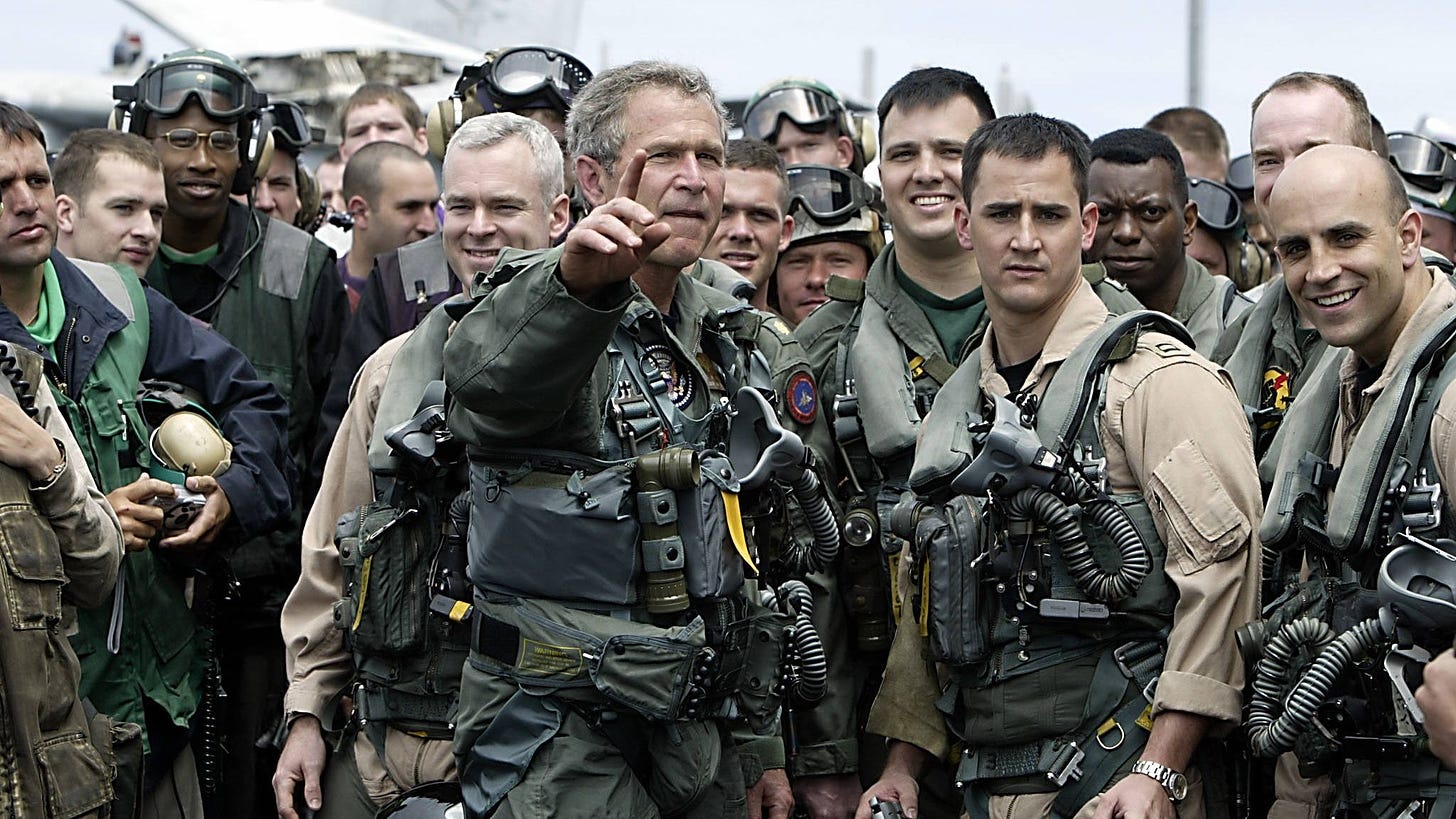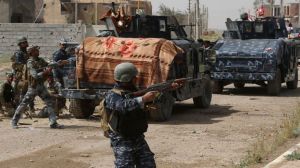W.J. Astore
Military Invasions Don’t Produce Democracies
Military invasions don’t produce democracies—who knew? Whether in Afghanistan or Iraq, somehow the U.S. government worked to convince itself and the American people that democracy could be exported at rifle point. Not surprisingly, military invasions spread what they usually do: death, destruction and chaos while sowing seeds for further violence and conflict. Such is one of the many lessons of Bush/Cheney’s disastrous decision to invade Iraq 20 years ago this weekend.
When the U.S. invaded Iraq in March of 2003, I was still on active duty in the military. I was a lieutenant colonel assigned to the Defense Language Institute Foreign Language Center in Monterey, California, or DLI for short. I can tell you this: the U.S. government expected a short and utterly victorious war, since there was no direction to us to expand foreign language training in Arabic. Only after Bush’s premature “Mission Accomplished” speech and the war’s subsequent degeneration into occupation, torture, battles of frustration like Fallujah, and subsequent quagmire did DLI finally get direction and more resources to expand training in Arabic.

That led to my first and only interview as a military officer in May 2005, when a reporter for the CS Monitor asked me about the importance of language training for U.S. troops. Here was my glib reply:
“We are trying to win the peace, and it is very important for us to be able to communicate even at a basic level,” says Lt. Col. William Astore, dean of students at the DLI. “I would much rather have soldiers communicate using words rather than using a rifle butt.”
OK as far as it went, but by the middle of 2005 we had already lost the peace in Iraq and Afghanistan. For one thing, we simply had too few troops with language skills, and it took 16 months to train them to a decent level of competence in Arabic. So we resorted to those rifle butts—and worse.
Another minor controversy at the time was the loss of skilled linguists to the military’s “Don’t ask, don’t tell” policy. As soon as a soldier said he was gay, he was basically gone, regardless of his language proficiency. A few troops gamed the system, finishing the bulk of their language training then self-reporting they were gay. That was enough to get them discharged.
Along with that mess, I recall a friend of mine, an Army major, being sent to Iraq in 2004 and working for the CPA, the Coalition Provisional Authority. He said he and his colleagues at the CPA knew Iraq wasn’t ready for the transfer of power overseen by the hapless L. Paul Bremer, but it went ahead anyway for political reasons.
He also told me how the military filled billets at the CPA and in the Green Zone of Baghdad. Basically, Big Army tasked unit commanders for bodies. The DLI Commandant sent one of his best officers, an experienced and skilled FAO (foreign area officer). But many other commanders took advantage of this “draft” by sending their worst officers to Iraq, the under-performers. At the same time, the Bush/Cheney administration was recruiting inexperienced civilians for Iraq and vetting them based on their views on abortion, capital punishment, and similar hot-button issues within the Republican Party. Combine less-than-competent officers with unprepared and largely clueless civilians and it’s not surprising the CPA performed poorly.
My experience with the chaos of Iraq was indirect and limited, but I well recall an urgent tasking to DLI to help with the translation of a Peter, Paul & Mary song to promote tolerance within Iraqi schools. No, I’m not kidding. Some American in Iraq decided a smart way of defusing ethnic and religious tensions in Iraq was to translate a song for kids. So we gathered some of our best Arabic instructors and quickly learned the song was more than problematic. It was about American kids making fun of other kids with braces and glasses, but any Iraqi kid with braces or glasses would be fortunate indeed. Other lines of the song mentioned gays, lesbians, and a teenage mother trying to overcome her past — not a place we wanted to go.
The song just didn’t translate, just like much of the American effort “to win the peace” and build a stable democratic Iraq didn’t translate (if you accept for the moment that that was the true mission). Too many Americans were prisoners of their own illusions in Iraq, or trying to make a fast buck, while troops at the front were simply fighting to survive a ghastly war, a war that was obviously far worse for the Iraqi people.
In the first few weeks of the Iraq invasion in 2003, the U.S. military did its job fairly well, and by that I mean the narrow mission of destroying Iraqi forces and overthrowing Saddam Hussein. After that, it was one disaster after another, one lie after another, because once Saddam was removed from power and the Iraqi military was disbanded, all hell broke loose. Civil war was the result, and, as I wrote in 2007, you can’t win someone else’s civil war. What we got in place of a “win” were the lies of Bush/Cheney and of General David Petraeus about “progress” in the Surge. But as the weasel Petraeus always said, his “gains” were fragile and reversible, and so they proved.
Of course, the Iraq War was based on alarmist lies (those WMD that weren’t there, those mushroom clouds in American skies). It was then preserved by lies until the lies could no longer be countenanced (or until they proved no longer profitable). Yet the liars were promoted (whether in the military or outside of it) and those who warned of the folly of war 20 years ago or those who tried to reveal the truth about war crimes or profiteering during the war were punished.
Though Donald Rumsfeld lost his job as Defense Secretary, few in the hierarchy were ever called to account for their crimes and blunders, so little was learned and much was forgotten.
So, it’s on to the next war, this time with China or Russia or Iran or whomever, but not to worry, the experts that brought you Iraq and Afghanistan and all the rest will get it right. Just look at their track record and how much they’ve learned!


